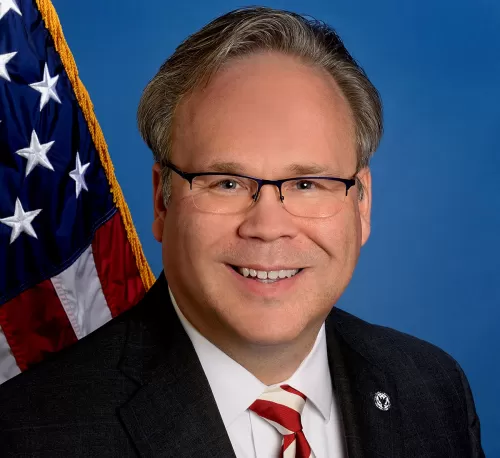NCUA Chairman Todd M. Harper
As Prepared for Delivery on November 18, 2021
Thank you, Cherie and Heather, for your update on the National Credit Union Administration’s response to the COVID-19 pandemic. Myra, Anthony, Sarah, and Justin, thank you, as well, for being available to answer questions. And, thank you to everyone who has worked on the agency’s response to the pandemic, which is really just about everyone at the NCUA.
None of us could have anticipated the extraordinary circumstances we found ourselves in these past 20 months, yet the NCUA team has exhibited tremendous resilience. By swiftly pivoting to a telework environment and continually working to address emerging risks, we have met the many challenges posed by the pandemic, including its economic fallout.
What is more, due to the hard work of many individuals on the NCUA team, the agency has moved quickly to prepare the credit union system for what lies ahead. One way in which we have prepared the system is to provide sensible, short-term regulatory flexibility.
Throughout 2020 and 2021, the NCUA adopted temporary, targeted, and tailored regulatory reforms to enable federally insured credit unions to manage their operational and financial risks while meeting their members’ needs and adapting to social distancing measures within their communities. Among other things, these temporary changes have:
- increased the aggregate amount of loan participations;
- waived minimum earnings retention requirements and simplified net worth restoration plans for certain credit unions; and
- suspended the required timeframes for the occupancy or disposition of properties not being used for federal credit union purposes.
When appropriate, we have also extended expiring temporary provisions. Last week, for example, the NCUA Board acted to allow federal credit unions to invoke at any point in 2022 virtual annual meetings. We will continue to take similar actions in the future, as appropriate.
Because credit unions need to have access to liquidity when other parts of our economy freeze up, the NCUA Board requested and got legislation to enhance the capacity and powers of the Central Liquidity Facility. Congress acted quickly to adopt those temporary enhancements as part of the CARES Act. Congress has temporarily extended the CLF reforms, and the NCUA Board will soon come together to request that Congress further extend these modifications. I would hope that we could eventually make these temporary reforms permanent, as they would strengthen the credit union system.
During today’s briefing, we also received an important update on the agency’s virtual exam program, including the lessons learned during the pandemic. Heather, when we met the other day, you explained that it is difficult to detect fraud when examiners are not on the premises.
With the COVID-19 pandemic, have there been any changes to fraud risk? And, as we consider the exam path forward, what should we prioritize to identify fraud? For example, should we increase testing of internal controls?
Thank you, Heather. That’s insightful, and something the agency should not lose sight of when setting our supervisory priorities for 2022.
In closing, thank you to everyone on the NCUA team for your outstanding efforts during these truly unprecedented times. And, thank you to the tens of thousands credit union employees who have become our nation’s financial first responders by adapting and adjusting to the pandemic’s many challenges to ensure that tens of millions of Americans continue to have access to safe, affordable, and fair financial services.
I now recognize Vice Chairman Hauptman.



